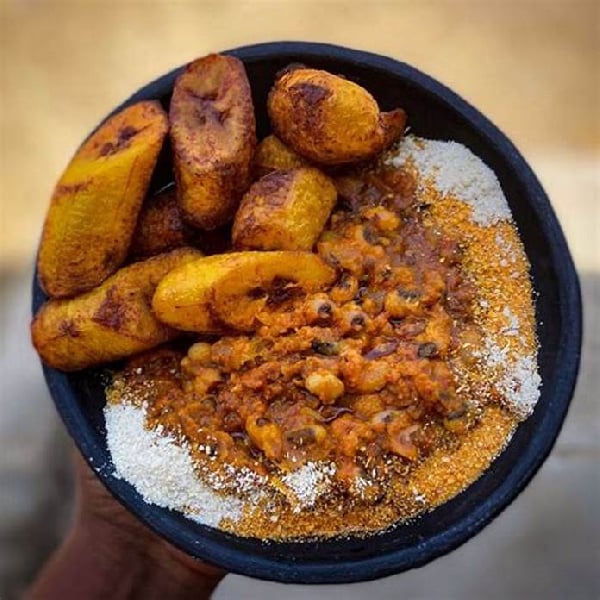Beans: A Nutritional Powerhouse for Health and Sustainable Agriculture
Nutritionists in Ghana are championing the increased consumption of beans, emphasizing their remarkable health benefits and potential to reduce the prevalence of heart disease, obesity, and cancer. Beans, including the popular local dish "Gobe" (gari and beans), are packed with essential nutrients, making them a valuable addition to any diet. Rich in protein, fiber, vitamins, minerals, iron, and other vital components, beans offer a wealth of nutritional benefits while being low in fat. This unique composition makes them an ideal food for preventing and managing chronic diseases. The advocacy for increased bean consumption aligns with global efforts to promote healthy eating habits and sustainable agricultural practices, highlighting the versatility and affordability of this superfood.
The "Meatless Monday" initiative, spearheaded by the Communications Initiative for Change (CIC), encourages Ghanaians to replace meat with bean-based meals every Monday. This initiative serves as a practical step towards integrating beans into regular diets, promoting both individual health and environmental sustainability. The initiative gained momentum following the United Nations’ declaration of February 10th as World Pulses Day in 2019, a day dedicated to celebrating and encouraging the consumption of beans worldwide. The "Meatless Monday" concept provides a simple yet effective framework for incorporating more plant-based meals into weekly routines, fostering a shift towards healthier and more sustainable dietary patterns.
Beans offer a wide array of culinary possibilities, with many traditional Ghanaian dishes already featuring them as a primary ingredient. These include Waakye (rice and beans), Kose (bean paste cakes), Ayikple, Aboboi, Tuo Zaafi, Akyeke, and Kakro. The diverse ways in which beans can be prepared highlights their culinary versatility, making them easily adaptable to various taste preferences and cultural traditions. Encouraging the consumption of these traditional bean-based dishes not only promotes health but also celebrates the rich culinary heritage of Ghana.
The nutritional advantages of beans are underscored by their high protein content, making them an excellent alternative to meat, especially for those seeking to reduce their animal product intake. The significant fiber content in beans also plays a crucial role in promoting digestive health and preventing constipation. Furthermore, beans contribute to regulating blood sugar levels, which is particularly beneficial for individuals with diabetes. The abundance of vitamins and minerals in beans further strengthens the immune system and supports overall well-being, making them a valuable addition to a balanced diet.
Beans are not only beneficial for human health, but they also contribute to sustainable agriculture. As legumes, they have the unique ability to fix nitrogen in the soil, enriching it for subsequent crops and reducing the need for synthetic fertilizers. This natural process of nitrogen fixation not only enhances soil fertility but also promotes environmental sustainability by minimizing the use of chemical inputs. The cultivation of beans, therefore, contributes to both food security and ecological balance, making them a crucial component of sustainable agricultural practices.
The benefits of beans extend beyond personal health, contributing to environmental sustainability and food security. By enriching the soil with nitrogen, beans promote the growth of other crops and reduce the need for artificial fertilizers. The cultivation of beans also contributes to water conservation, as they require less irrigation than many other protein sources. Furthermore, beans are a readily available and affordable food source, contributing to food security in many regions. Their long shelf life adds to their value, making them a reliable and sustainable nutritional resource. Therefore, promoting bean consumption supports both individual well-being and the health of the planet.


